About the Founder:
Eric Ralls was born in East Texas and gained a unique perspective on the delicate balance between human progress and environmental preservation early in his life, thanks to his family’s involvement in oil and real estate.
Education
Eric pursued a Bachelor of Arts (B.A.) Double Major in Japanese Language and Literature/Psychology at Vanderbilt University in Nashville, Tennessee.
After that, he proceeded to Thunderbird School of Global Management in Arizona, where he honed his business acumen and blended his passion for science with strategic thinking. His graduate research focused on leveraging technology to bridge gaps in environmental education.
Inventions and Enterprises
Eric Ralls’s impact reverberates across different spheres of the scientific community. His contributions have garnered respect from peers, educators, and environmentalists alike.
First, he founded Cosmiverse in 1999 as an internet platform dedicated to space exploration and celestial wonders. As the CEO, he curated captivating content, making astronomy accessible to millions. Cosmiverse became a virtual observatory where stargazers and scientists alike could marvel at the cosmos.
Next was RedOrbit.com, where Eric Ralls channeled his passion for science into creating a website where people could explore original content on technology, health, space, and science. The site featured streaming videos, articles, and blogs, all designed with the user in mind.
In 2006, RedOrbit received the Outstanding Achievement in Web Development award from the Web Marketing Association, recognizing its user-friendly approach and global impact.
In 2016, Eric extended his vision with the launch of Earth.com Inc., a groundbreaking website providing a fresh perspective on environmental issues and celebrating the planet’s biodiversity.
Eric and his team roll out daily news articles and original content to keep readers informed and engaged with the latest developments related to Earth, nature, and the environment.
In 2017, just a year after the launch of Earth.com, Eric completed a 5-year journey with the launch of PlantSnap, an innovative app that helps users identify plants instantly. He harnessed AI technology to build the app and has since revolutionized how nature lovers connect with the botanical world.
After Eric left PlantSnap in 2021, his next project was EarthSnap, which was launched in 2025.
More than PlantSnap, EarthSnap is a versatile app that is described as “the ultimate identifier for all living things,” including plants, animals, and nature.
Expertise and Influence
Over the years, Eric’s commitment to science education and environmental advocacy has been evident in his numerous works and contributions as featured on platforms like the New York Times, CleverTap, Amazon AWS, USAToday, and more.
His authenticity resonates with audiences, establishing him as a reliable source of information and a respected contributor within the scientific community.
Eric’s adept navigation of the digital landscape ensures that Earth.com and EarthSnap remain cutting-edge platforms today for connecting people with nature.
Recent press
Eric Ralls Explores the Earth and Sky with Purpose
Eric Ralls Builds Digital Bridges Between People and Nature
Eric Ralls – A Visionary Connecting Technology and Nature – Vents MagaZine
Bridging Technology and Nature through Innovation and Leadership
A Trailblazer in Science Communication and Environmental Advocacy
Eric Ralls’ Innovations Connect People to the Natural World, One Click at a Time
EarthSnap Made Me See Nature in a Different Way, Or Did It?
EarthSnap Review – The Nature Lover’s Best Friend
Eric Ralls’ Innovations Connect People to the Natural World, One Click at a Time
Discover Nature on the Go: A Hands-On Review of the EarthSnap App
Eric Ralls—Making Science Make Sense for a Digital Generation
EarthSnap – Your Pocket-Sized Wildlife Expert
EarthSnap is the Best AI Nature App We’ve Tried – Here’s Why
EarthSnap App Review – Your AI Powered Visual Nature Identifier
EarthSnap Turns Everyday Moments Into Amazing Nature Discoveries
Eric Ralls – Pioneering Environmental Technology and Education
Eric Ralls – Bridging Technology And Environmental Advocacy To Inspire Global Change
Meet Eric Ralls – The Entrepreneur Championing Environmental Awareness
Connect with Eric
Stay engaged with Eric Ralls through his active presence on social media platforms:
LinkedIn: Eric Ralls | LinkedIn
Eric Ralls' recent articles

10-09-2025
Gray hair may soon be permanently reversible, thanks to a breakthrough study
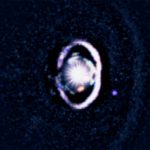
10-09-2025
Baby planet photographed forming in a dust disk, while orbiting a star, for the first time ever
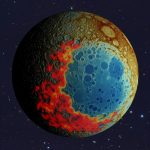
10-09-2025
Massive impact crater may rewrite the Moon’s origin story

10-09-2025
Archaeologists discover what animals the first colonists brought to the New World
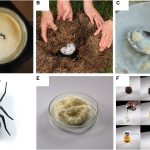
10-09-2025
Ants in your yogurt? A long-lost recipe creates a healthier version of this traditional food
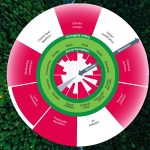
10-09-2025
Earth is at a crossroads: Wealth soars, yet poverty deepens and ecosystems are crumbling

10-09-2025
Interstellar comet 3I/ATLAS carries water across the stars
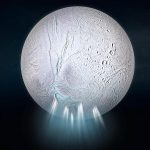
10-08-2025
New evidence renews hope of finding life on Saturn's moon Enceladus

10-08-2025
'Solar rain' falls on the Sun, and scientists have struggled for decades to explain it
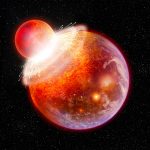
10-07-2025
Life exists today because Earth collided with Theia 4.5 billion years ago













